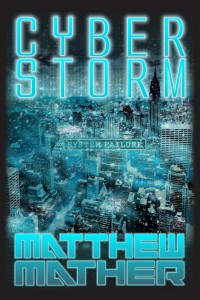During my time of despair after Google decided to kill Reader, one of my favorite bloggers, Michael Mace, wrote a great article titled “Google Logic: Why Google Does the Things it Does.” As with most of Mace’s articles, it’s a long read, but very well written, insightful, and thought-provoking.
In the article, Mace theorizes on why Google does a lot of things that it does, like killing products that people love (e.g. Reader), buying Motorola, and even things like the evolution of Google Docs. He does a great job of showing how the corporate culture and actions & egos of the founders influence how and why Google does what it does. He also points out what he sees as Google vulnerabilities, why their competitors (Apple, Microsoft, Facebook, and others) succeed against them, and how those same competitors can continue to do so going forward.
The most important point he makes in the article is not about Google. Near the beginning of the article, he states:
…it’s a mistake to assume there’s a logical reason for everything a company does. Sometimes managers act out of fear or ignorance or just plain stupidity, and trying to retrofit logic onto their actions is as pointless as a primitive shaman using goat entrails to explain a volcano.
In my opinion, what he’s trying to say is that companies are not rational entities.
For whatever reason, we on the outside want to believe that a company is led by rational decision makers who use nothing but data and quantitative factors in their decision-making process. Unfortunately, having personally been involved in key decisions at a large company, most are driven more by ego, emotion, politics and inertia than quantitative factors. That’s why we are regularly frustrated when Google kills are favorite product, Apple fails to announce an updated Apple TV or smartwatch, HP does nothing with WebOS, Microsoft flubs Windows 8, and so on.
To put it another way, companies are not designed to make intelligent rational decisions. Their job is to satisfy stakeholders (employees, customers, investors) and to keep the company running smoothly, which sometimes involves stroking the egos of key employees, reacting emotionally to competitive pressures, or playing corporate and industry politics. It’s why I believe Mace’s article is spot-on and a must read for anyone who wants to understand corporate dynamics. He breaks down the qualitative factors that are most likely playing into Google’s decision making process and strategy. It will help you understand why companies are not rational entities.


